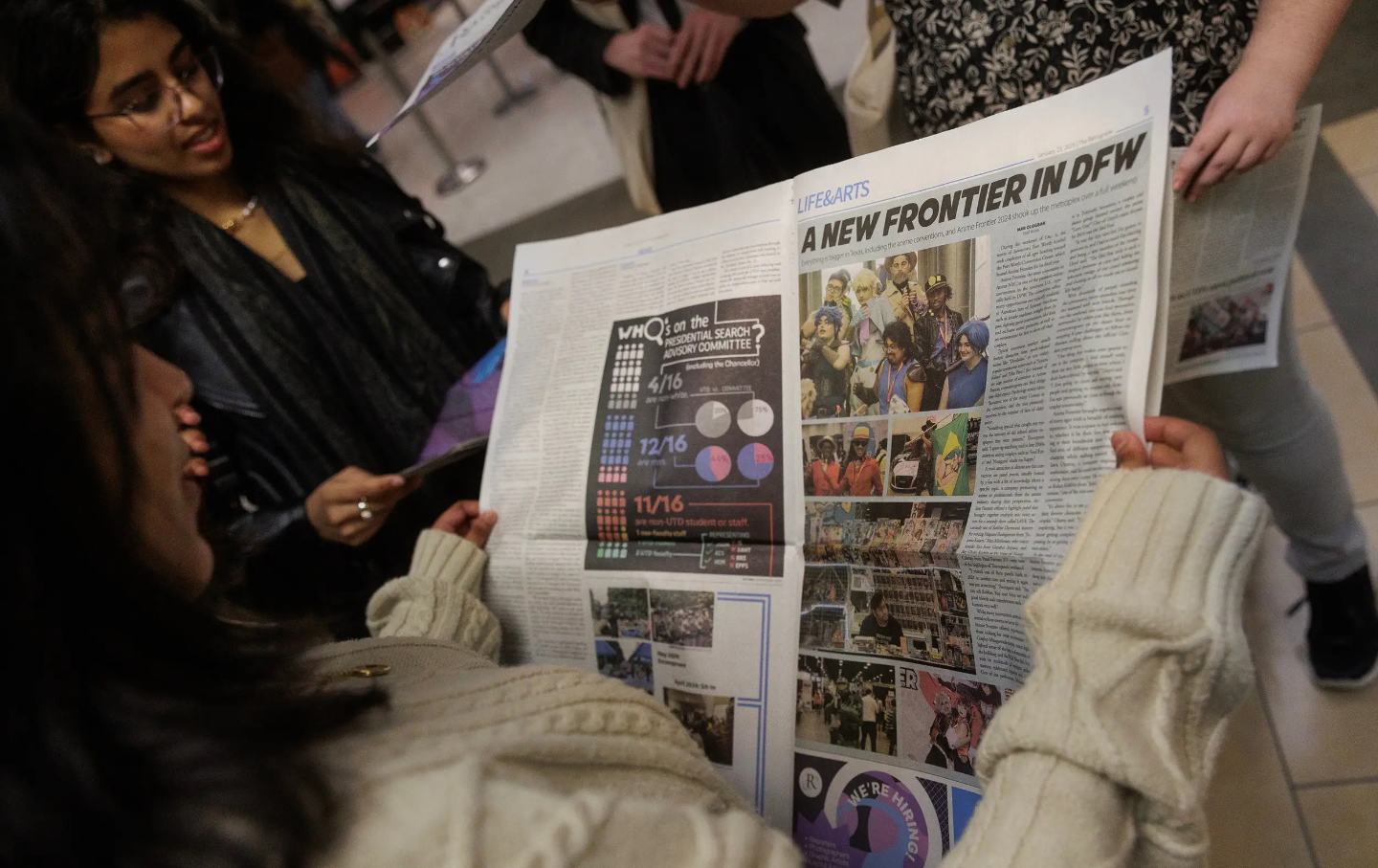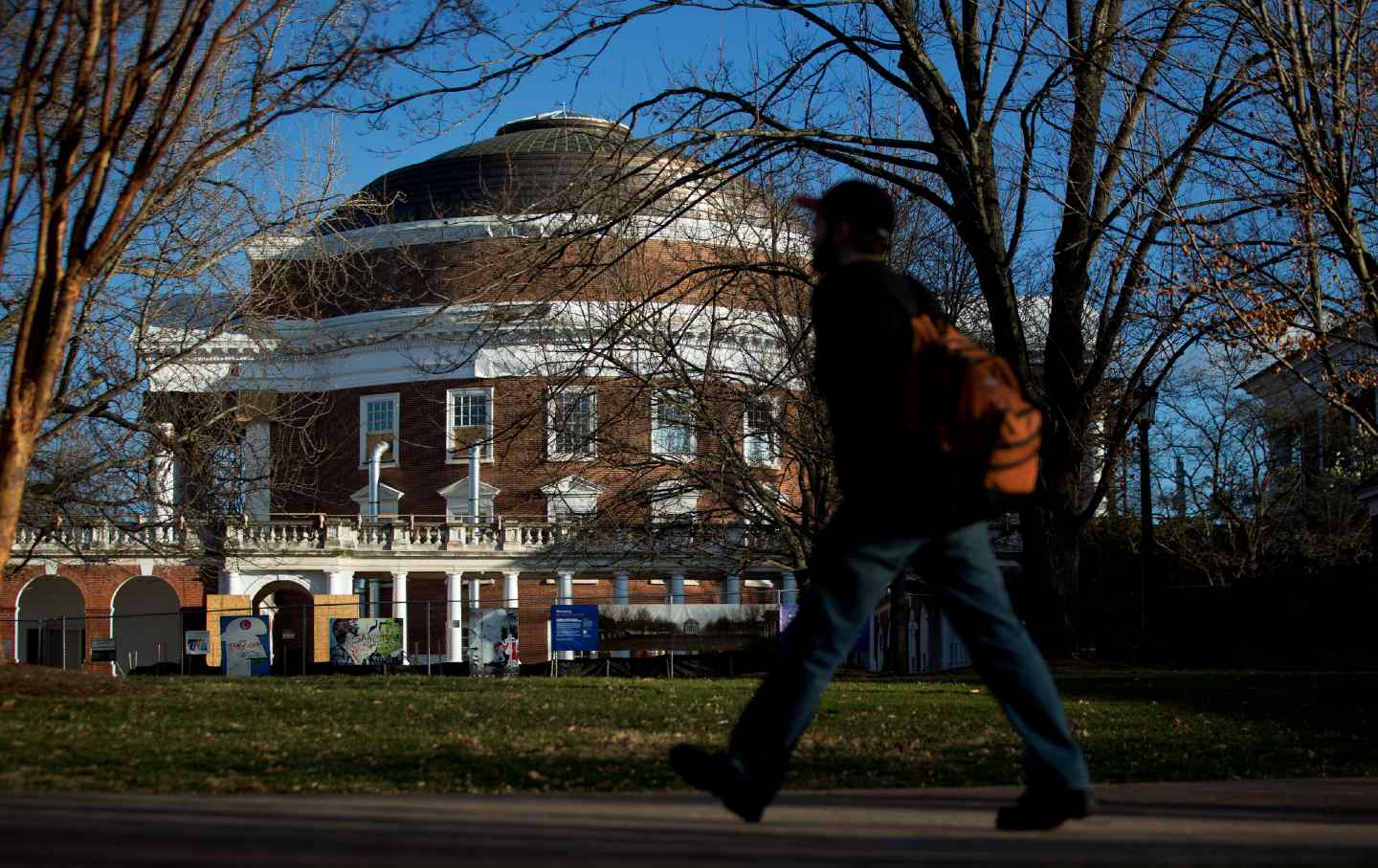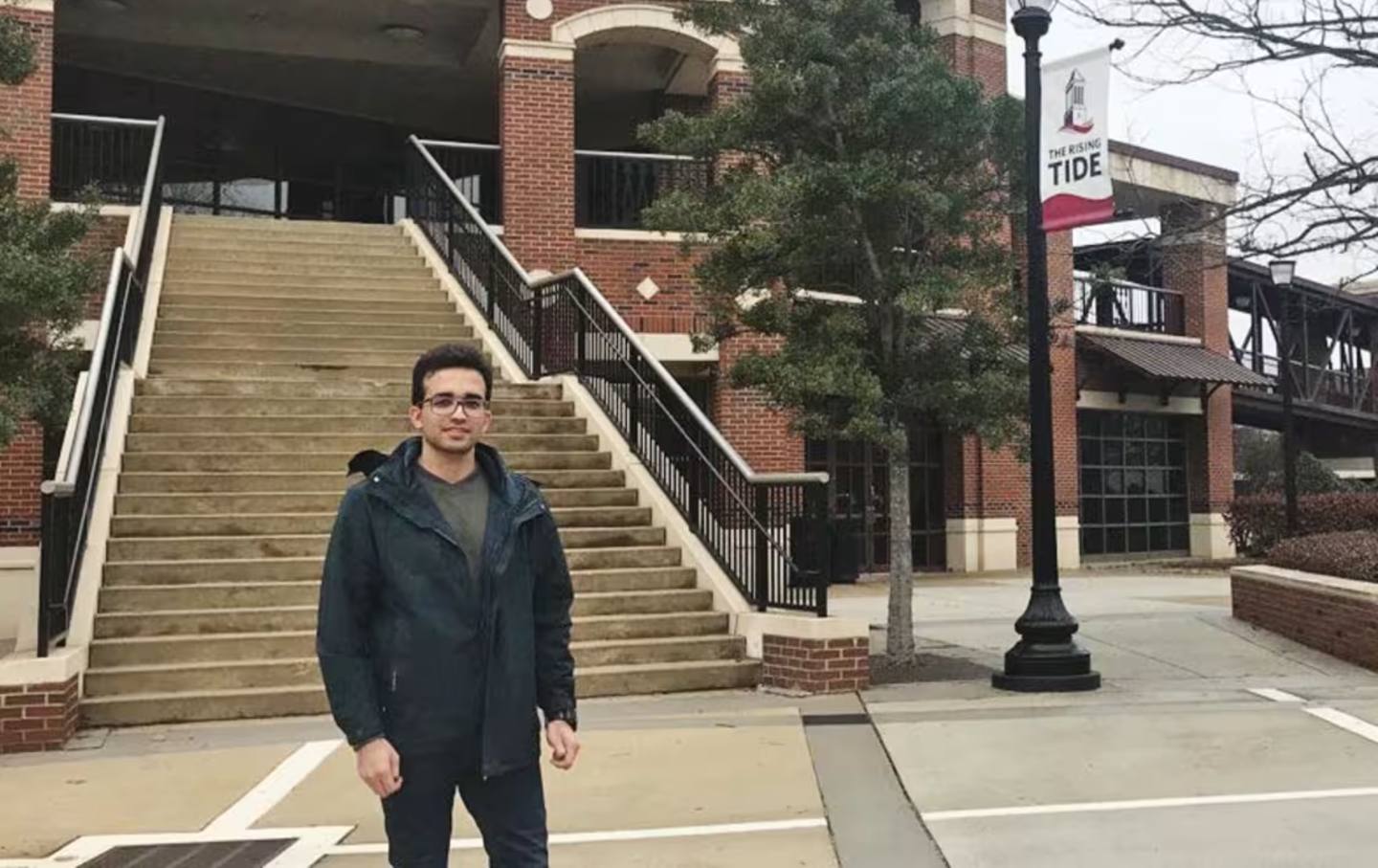How Trump Could Help Conversion Therapy Make a Comeback
Trump’s anti-queer terror campaign is providing the perfect environment for the dangerous practice to spread.

As far-right politicians do everything in their power to all but eradicate trans people from public life, Casey Pick of the Trevor Project says conversion therapy is never far from the top of her mind.
“[It’s all] is premised on the idea that if you suppress an individual’s ability to express their identity, then maybe they will not have that identity,” says Pick, director of law and policy at the LGBTQ+ youth suicide prevention nonprofit. “There is that underlying assumption that people can change, if only they are not affirmed.”
According to a 2019 study by the Williams Institute at the UCLA School of Law, nearly 700,000 LGBTQ+ adults in the United States have received conversion therapy, with half of those adults having received it as adolescents.
The effects of conversion therapy—the practice by which therapists wrongfully claim that they can help patients change their sexual orientation and/or identities—are, in a word, disastrous.
Research shows that cisgender queer people who have undergone conversion therapy are almost twice as likely to contemplate and attempt suicide, and trans people face similarly elevated risks as well. People who undergo conversion therapy are at greater risk for substance abuse, post-traumatic stress, and other mental health consequences, experts say.
Some of the country’s leading medical groups, including the American Psychiatric Association and the American Medical Association, have condemned conversion therapy because of these myriad harms. They recommend what queer people already know to be true: that affirmation and acceptance are what queer youth need.
Experts say the practice also costs the US economy more than $9 billion a year in both direct costs related to performing the practice and those associated with treating trauma related to conversion therapy.
But rather than a relic of the past—something confined to the cult classic satire But I’m a Cheerleader or a Will & Grace rerun—experts like those at the Trevor Project say conversion therapy is still very much alive and well. And the evidence shows that the Trump administration’s terror campaign against queer people is creating an ideal environment for conversion therapy to gain even more ground.
Amid a slew of anti-LGBTQ+ executive orders, President Trump rolled back a Biden-era executive order that sought to prevent federal funds from going toward conversion therapy, which advocates like Pick of the Trevor Project say were some of the only federal protections against this practice.
More recently, the GOP-dominated Kentucky State Legislature overrode Democratic Governor Andy Beshear’s veto of a bill that allows conversion therapy to continue in the state.
It’s unclear what the future holds—but advocates don’t like where things are going.
In December 2023, the Trevor Project said it identified more than 1,300 practitioners of conversion therapy across the country, with nearly half operating with professional credentials like psychologists, social workers, and licensed professional counselors.
More than half of US states ban the practice for minors, with California being the first to do so in 2012. And since their existence, laws banning the practice have been challenged by anti-LGBTQ+ groups, most commonly as a violation of practitioners’ freedoms of speech and religion. Those were the arguments plaintiffs made when suing Michigan and Virginia last year over their own bans on the practice (the lawsuits are still progressing).
Virginia Senator Adam Ebbin of Alexandria, the state’s first openly gay legislator, was a cosponsor of the bill to ban conversion therapy in Virginia when it was introduced in early 2020. In response to the lawsuit over Virginia’s ban, he criticized counselors seeking to continue practicing conversion therapy.
“At best it’s a misguided misunderstanding of human dynamics and an ignorance of the life-threatening damage that these conversion therapy schemes can offer,” he said. “And at worst, it’s political pandering.”
To be clear, these laws prohibit licensed professionals from engaging in conversion therapy, but as the Trevor Project found in its report, many practitioners are religious counselors who are exempt from these restrictions. And as far as claims that bans violate freedoms of speech and religion, experts like Pick point out that the bans regulate conduct rather than speech.
“It does not restrict what people can say, what they can argue,” Pick says. “An individual could even have a conversation saying, ‘I believe that it is possible for a therapist to change someone’s sexual orientation.’ They just can’t actually try to do it.”
Most recently, a Michigan federal judge earlier this year denied counselors’ efforts to pause the ban while their suit seeking to overturn it plays out in federal court. According to court records, no hearings have been held and no additional pleadings have been filed in the Virginia suit, beyond the initial complaint that was filed in Henrico County Circuit Court.
In the decision, Michigan federal judge Jane Beckering wrote that “[p]ublic interest lies in regulating the practice of state-licensed professionals and protecting the psychological wellbeing of minors.”
And Judge Beckering’s ruling follows a trend that goes back a decade. In 2015, in a first-of-its-kind lawsuit brought by the Southern Poverty Law Center, a New Jersey jury found that a group in the state providing conversion therapy committed fraud under New Jersey’s consumer protection laws by claiming to be able to change men’s sexual orientation.
Pick, of the Trevor Project, says the Michigan suit is so recent only because the state passed its conversion therapy ban in 2023—showing continued momentum for other states to enact their own bans, as well as efforts to challenge those bans.
Federal appeals courts have repeatedly ruled in favor of conversion therapy bans, with the exception of the conservative Court of Appeals for the 11th Circuit. Even the US Supreme Court previously dodged the chance to address these laws when it refused to consider a ruling striking down a challenge to Washington’s conversion therapy ban, though justices Clarence Thomas and Samuel Alito argued in separate dissents that the court should take up the case. Justice Brett Kavanaugh also voted to hear the case.
But in a significant heel turn, the high court in early March decided to take up a case, filed by the powerful anti-LGBTQ+ advocacy group Alliance Defending Freedom, challenging Colorado’s conversion therapy ban, potentially imperiling these laws around the country.
Popular
“swipe left below to view more authors”Swipe →“The law protects families from unethical state-licensed health professionals who prey on parents with false promises that they can prevent youth from being LGBT,” said the National Center For Lesbian Rights’ Chris Stoll, who has been involved in efforts to enshrine bans on conversion therapy going back more than a decade. “These practices have been denounced by every major medical association in the country because they have no legitimate role in mental health care and cause a range of serious harms, including dramatically increasing suicidality.
“Colorado has acted responsibly to protect youth and families, and the Supreme Court should leave these crucial protections in place.”
But even amid overwhelming support for conversion therapy bans across the country, experts say these days, misconceptions about conversion therapy abound, namely that the pseudo-science is uncommon, bygone snake oil.
Jess Stevens, the LGBTQIA+ clinical lead at Rooted Counseling in Michigan, says it’s also far from the harmless talk therapy or would-be summer camps for precocious queers that practitioners make it out to be.
In fact, torturous aversion therapy has been used when talk-based conversion therapy has failed to rid subjects of their queer thoughts. Shock therapy and vomit-inducing chemicals have been used to make patients sick at the sight of lovers or pornography or when dressing in clothes that don’t match the stereotypical outfits for their sex assigned at birth. One practice of shocking patients through electrodes implanted directly into the brain was pioneered by a New Orleans psychiatrist by the name of Robert Galbraith Heath.
The APA’s decision to remove homosexuality from its manual of mental disorders in 1973 forced conversion therapists to be more creative and clandestine in their efforts to continue the practices, often in the form of camps or facilities like those frequently depicted in popular culture today in memoir-turned-film Boy Erased and The Miseducation of Cameron Post.
Stevens, who is also the Eastwood site supervisor for Rooted, says that over the course of his practice, he’s seen more than a dozen patients who have gone through “traditional” conversion therapy—meaning so-called therapy performed by someone claiming to be able to change their sexual orientation or gender identity—and that the effects of this so-called therapy can last for lifetimes, permanently affecting how people form friendships or romantic relationships and even how they express their queerness.
If you talked to experts and legal advocates just months ago, they would have agreed that conversion therapy was, frankly, small potatoes compared to other more immediate issues impacting the queer community—like a yearslong trend of anti-trans legislation or a continued rise in anti-LGBTQ+ hate crimes, just to name a few.
But with Trump in power and state legislators like those in Kentucky moving to defend conversion therapy, the issue is back on the agenda.
“It is unfortunate to see the pulling back of an executive order that directed agencies of the federal government to prevent this unethical, unscientific, not evidence-based, practice, which we know to be so deeply harmful,” Pick says.
Experts and advocates also universally recognize the dichotomy between efforts by conservative lawmakers to ban best-practice medical care for trans youth and efforts by religious groups to defeat bans on knowingly harmful practices that aim to suppress, instead of affirm, LGBTQ+ identity.
“These people want to masquerade as mental health professionals and try and ruin children’s lives by trying to reprogram them, and at the same time saying that doctors can’t help kids with gender dysphoria,” Senator Ebbin said. “Never underestimate how low the far right is willing to go and the callous disregard for the mental health of young people to further their political goals.”








